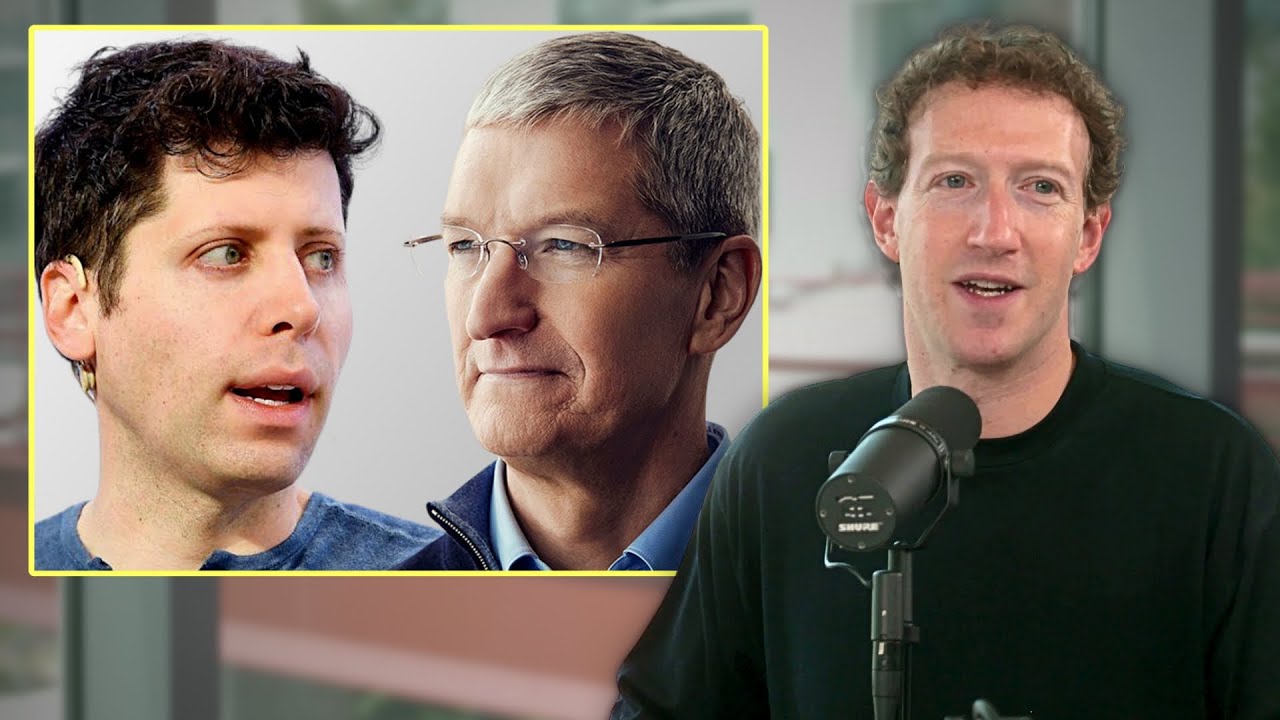Mark Zuckerberg discusses the issue of gatekeeping in the tech industry, highlighting concerns about potential monopolistic control over AI by a few dominant companies. He advocates for open source initiatives in AI development to empower developers, prevent concentrated control, and foster collaboration for a more vibrant and innovative tech ecosystem.
In the video, Mark Zuckerberg discusses the issue of gatekeeping in the mobile ecosystem, specifically mentioning Apple and Google as the two dominant companies that can dictate what developers are allowed to build. He expresses frustration about instances where Apple has prevented Facebook from launching certain features, highlighting the economic and qualitative control these gatekeepers exert. Zuckerberg questions whether a similar scenario could arise in the field of artificial intelligence (AI), where a few companies might monopolize control over AI models and APIs, limiting innovation and creativity. He emphasizes the importance of not being dependent on others for AI capabilities and advocates for open source initiatives to empower developers and prevent concentrated control over AI technologies.
Zuckerberg asserts that Facebook is committed to developing its own AI models to avoid being subject to restrictions imposed by other companies. He believes that many developers share the desire to have the freedom to build without constraints from gatekeepers. He advocates for the open source approach in AI development, arguing that a decentralized deployment of AI systems will create a healthier ecosystem compared to a scenario where control is concentrated in the hands of a few powerful entities. Zuckerberg acknowledges the risks involved but suggests that a more distributed and democratized AI landscape would be more beneficial in the long run.
The discussion delves into the potential scenario of open sourcing a $10 billion AI model and the implications of such a decision. Zuckerberg reflects on Facebook’s history of open sourcing software and infrastructure, citing the Open Compute Project as a successful example. By making certain technologies open source, Facebook has not only benefited from cost savings and industry standardization but has also contributed to the broader tech community. Zuckerberg sees potential advantages in open sourcing AI models, such as optimizing costs and fostering collaboration that could lead to significant savings and advancements in AI development.
Zuckerberg raises an intriguing question about the impact of open source initiatives like PyTorch, React, and Open Compute Project compared to the social media platforms under Meta’s umbrella. He ponders whether the global influence and benefits derived from open source technologies might outweigh the significance of social media services. Acknowledging Facebook’s massive user base and impact on the internet, he still sees open source as a powerful force for innovation and collaboration. Zuckerberg’s remarks underscore the transformative potential of open source initiatives in shaping the future of technology and fostering a more inclusive and diverse tech landscape.
In conclusion, Zuckerberg’s insights shed light on the challenges and opportunities presented by gatekeeping and control in the tech industry, particularly in the realm of AI development. He advocates for a decentralized and open approach to AI innovation to prevent monopolistic control and spur collaborative advancements. By emphasizing the importance of open source initiatives and the potential benefits they offer, Zuckerberg envisions a future where AI technologies are democratized and accessible to a broader community of developers, ultimately leading to a more vibrant and innovative tech ecosystem.
